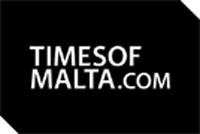It is one of the terrible ironies that some of the world’s poorest countries are the most resource rich. Some even talk of the “resource curse”. Africa, in particular, has many resource-rich countries that have stayed poor because of the collaboration between extractive companies and corrupt government officials. The Democratic Republic of the Congo is one example but there are many more, especially in Africa.
It is very easy to blame corrupt authoritarian regimes in these countries but we need to remind ourselves that the ownership of many of these companies is often European or North American.
Indeed, the role of extractive companies is particularly controversial. We all know of oil or logging companies that have made vast profits from countries whose people remained poor. At the moment, unscrupulous companies are able to profit from a veil of secrecy. Nobody knows who they are paying and how they are doing it. As a result, there is often unfair competition, corruption and, indirectly, poverty.
This week, the Parliament’s Economic Committee formally began deliberations on the Transparency Directive, which should take an important step towards addressing these problems.
This legislation, on which I am the Socialist and Democrat group spokesman, proposes that European extractive and timber companies should publicly disclose their tax and revenue payments to governments around the world. At EU level, we are also working in parallel with the Dodd-Frank legislation passed by the US Congress, which is putting together its implementing measures.

There are two key proposals in the legislation. Firstly, there should be country-by-country reporting of corporate payments to governments. Secondly, there should be more transparency and regulation in the way that individuals and groups are able to build up financial control over extractive companies.
The country-by-country reporting would require European companies that are involved in the extractive or logging industries to publicly disclose the payments they make to governments each year and the individual projects the payments were for. It would also require companies to show how much tax they were paying in African countries.
Not only would this disclosure provide local people and European investors with detailed information about the operations of extractive companies but it would also allow African citizens to be more able to hold their governments to account. People in countries with supplies of oil, gas and valuable minerals have a right to expect to share the proceeds of these minerals.
Certainly, when one considers that it is local communities that have to bear the negative consequences of mining and logging on their environment, they have the right to know what deals their government has struck on their behalf. It is also logical to expect that, with international companies across the world seeking access to scarce natural resources, public disclosure would require companies to show they were offering a fair deal to poor countries.
The other key revision concerns the question of “hidden ownership” where individuals use different financial instruments to secretly build up a controlling stake in a listed company. Not only can such practices lead to insider trading and speculation but it can also be a means for trust funds or individuals to build controlling stakes in extractive companies without citizens ever knowing.
Under the Commission’s proposal, investors would be required to reveal all financial instruments that have the same economic effect as shareholding. As MEPs, we must ensure that we leave no loopholes that could be exploited.
Although it is important for EU countries to meet their investment and aid commitments, the truth is that the value of the Third World’s natural resources greatly outweighs foreign aid. According to the Publish What You Pay campaign, at $393 billion, exports of oil, gas and minerals from Africa in 2008 were worth nine times the $44 billion provided in international aid and over 10 times the $37 billion of exported agricultural produce.
Needless to say, the extractive industries are throwing their many millions into a frenzied lobbying campaign in a bid to get MEPs to water down the directive. Already, my office has been inundated with meeting requests from the oil, commodity and logging giants.
The Danish government, which holds the EU presidency, is very anxious to have the Transparency Directive agreed by Parliament and the member states by the end of June so the pace of work will be very fast. But, although we must ensure that the final legislation is effective and workable, we must all recognise that the combination of corruption, secrecy and unfair competition has done great damage to the world’s poorest countries. It is time that we take this opportunity to make dodgy deals between extractive companies and dictators a thing of the past.
– timesofmalta.com : Friday, 30th March, 2012

